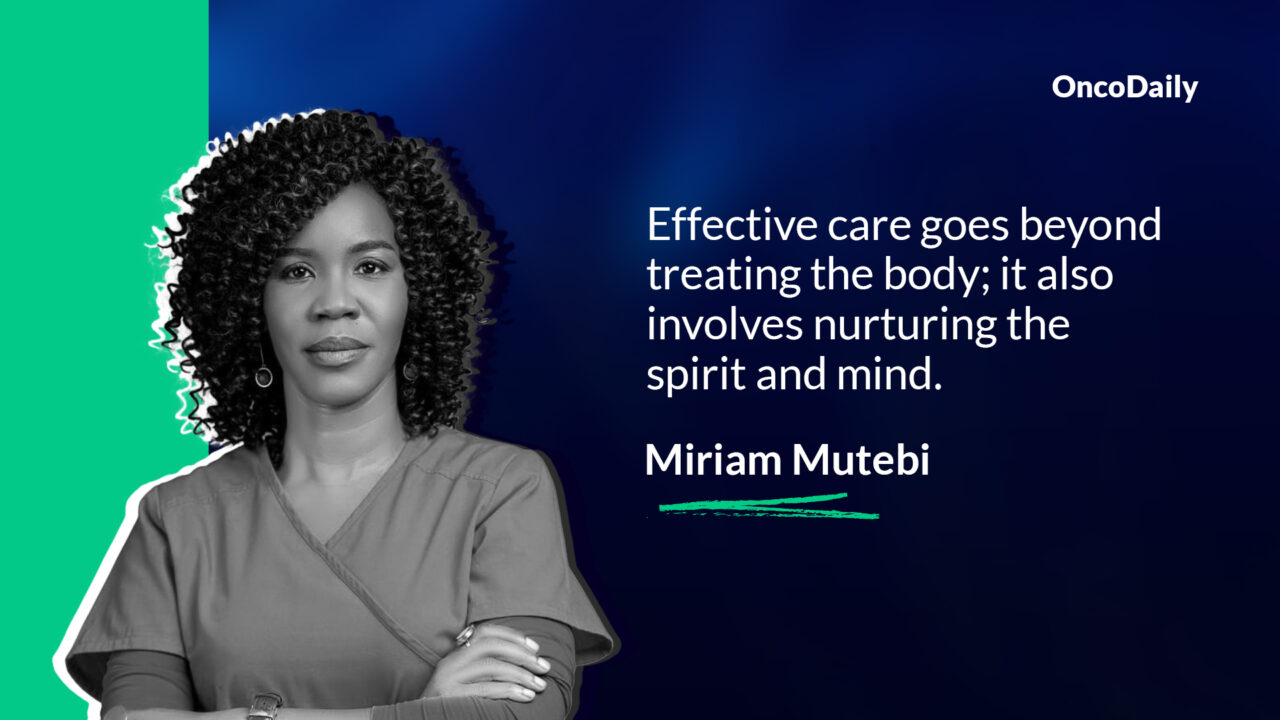Miriam Mutebi shared on LinkedIn:
“Cancer is not just a physical battle; it’s a profound psychological journey impacting patients and their families.
In many healthcare settings, physicians often have only a few minutes to hours to consult with patients, which is insufficient for providing comprehensive psychological support.
This underscores the need for the entire healthcare workforce to create spaces where patients can openly share their fears and concerns. Developing patient navigation services is crucial in this regard.
Access to psychological care is essential in the treatment journey, yet it’s still out of reach for many patients.
We must advocate for integrating these services as a key component of cancer care and other chronic health conditions, like renal failure.
In a previous post, I discussed the importance of empathy in cancer care.
Small gestures, like playing calming music (a patient likes) from your smartphone before a procedure, praying together, or making a follow-up call the day after discharge, can significantly impact a patient’s psychological well-being.
Over the years, I’ve made it a habit to inquire about important people and events in my patients’ lives and lead with these in follow-up conversations and consultations.
It’s crucial that they feel I care beyond the operating table—that they are not just another surgery number or piece of oncological data.
Palliative and supportive care professionals Christian Ntizimira Executive Director of ACREOL (Rwanda), Emmanuel Luyirika Executive Director of the African Palliative Care Association (Uganda) – chairs of the AORTIC- Africa special interest group in supportive and palliative care, and Nahla Gafer, VP North Africa, are key members of the patient care workforce recognized for their work in palliative care. I will spotlight them in a future post.
It’s crucial to build care teams where patient navigators play a role in ensuring patients stay in care and address their concerns; financial, social, or otherwise.
Nurses and other healthcare workers (HCWs) are essential in expanding these roles and linking communities to health systems.
Psychological support should offer realistic and practical hope, based on research, throughout all stages of cancer care—including diagnosis, treatment, palliative care, and survivorship.
Providing open communication channels, support groups, follow-up care, and involving families in the process can help ease the mental and emotional burden of cancer.
Effective care goes beyond treating the body; it also involves nurturing the spirit and mind. At AORTIC we recognize that treating cancer isn’t just about the physical aspects; it’s about supporting the whole person.
As HCWs we are responsible for ensuring psycho-oncological care is integral to the treatment process, allowing patients to find hope and strength throughout their journey.
More on this in a future post.”

Source: Miriam Mutebi/LinkedIn
Miriam Mutebi is a Breast Surgical Oncologist and Assistant Professor in the Department of Surgery at the Aga Khan University Hospital in Nairobi, Kenya. She is also the Vice-President of East Africa of the African Organization for Research and Training in Cancer (AORTIC), treasurer for the Kenya Society of Hematology and Oncology (KESHO) and on the Board of Directors of the Union for International Cancer Control (UICC).
She is the co-founder of the Pan African Women’s Association of Surgeons and is part of the Kenya Association of Women Surgeons. She is an avid supporter for the education and support for women, especially in surgery and she aims to provide mentorship for women in surgery and to improve women’s health and surgical care in Africa. She is currently pursuing a pilot’s license in order to extend breast care services to marginalized areas.


